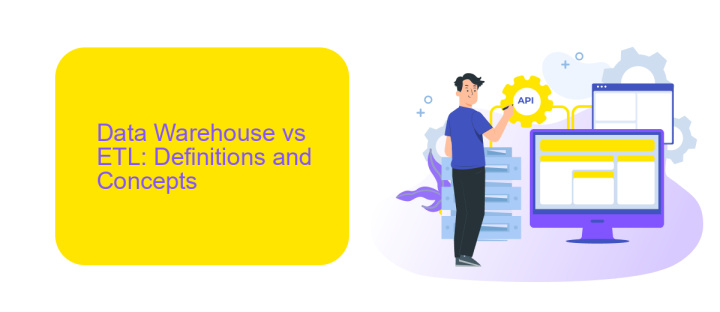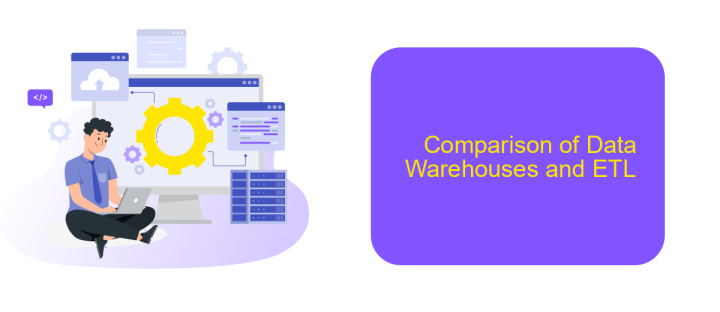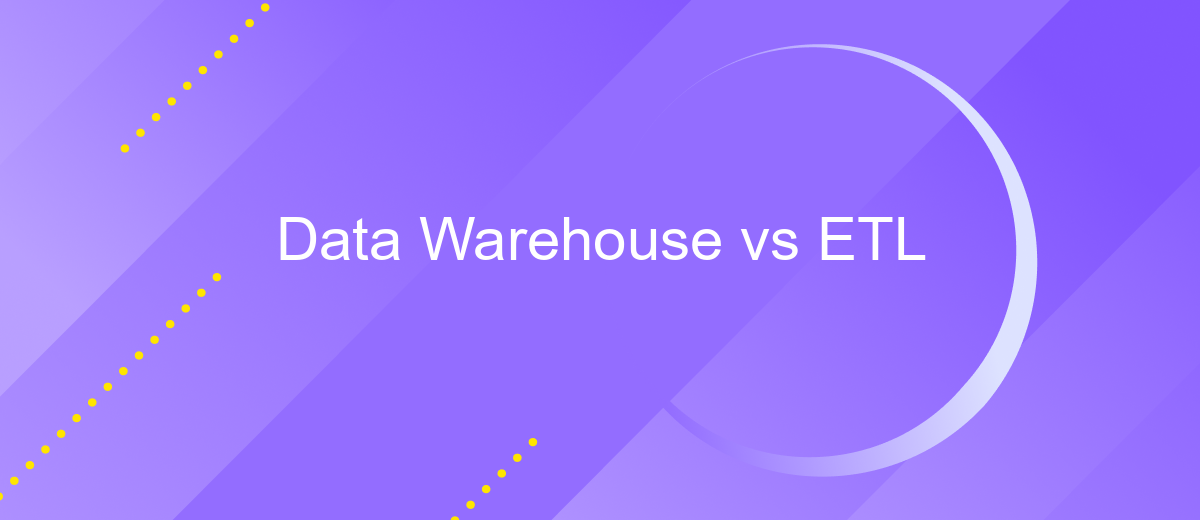Data Warehouse vs ETL
In the realm of data management and analytics, understanding the distinction between Data Warehouses and ETL (Extract, Transform, Load) processes is crucial. While both play integral roles in handling and processing data, they serve different purposes and functionalities. This article delves into their differences, exploring how each contributes to effective data management strategies and business intelligence solutions.
Introduction
Data Warehousing and ETL (Extract, Transform, Load) are two crucial components in the realm of data management. While both aim to facilitate efficient data processing and storage, they serve distinct purposes and operate in unique ways. Understanding the differences between them is essential for organizations looking to optimize their data workflows and make informed decisions.
- Data Warehouse: Centralized repository for storing large volumes of data from various sources.
- ETL: Process of extracting data from different sources, transforming it into a usable format, and loading it into a data warehouse or other storage systems.
Choosing between Data Warehousing and ETL often depends on the specific needs and goals of an organization. For instance, services like ApiX-Drive can simplify the integration process, making it easier to connect various data sources and automate workflows. By leveraging such tools, businesses can streamline their data management practices, ensuring that data is both accessible and actionable.
Data Warehouse vs ETL: Definitions and Concepts

Data Warehouse (DW) is a centralized repository designed to store, manage, and analyze large volumes of structured and unstructured data from various sources. It supports business intelligence activities such as reporting, analytics, and data mining by providing a unified view of the organization's data. DWs integrate data from multiple systems, ensuring consistency and accuracy while enabling complex queries and analysis. They are optimized for read-heavy operations and can handle historical data, making them essential for long-term data storage and strategic decision-making.
Extract, Transform, Load (ETL) is a process used to move data from source systems into a data warehouse. The ETL process involves extracting data from various sources, transforming it to fit operational needs (including data cleaning, normalization, and integration), and loading it into the DW. ETL tools automate these steps, ensuring data is accurate and up-to-date. Services like ApiX-Drive can facilitate ETL processes by providing seamless integration between different data sources and the data warehouse, streamlining data flow and reducing manual efforts.
Benefits and Use Cases of Data Warehouses and ETL

Data warehouses and ETL (Extract, Transform, Load) processes are essential components in modern data management strategies. Data warehouses serve as centralized repositories for storing large volumes of data from various sources, enabling efficient querying and analysis. ETL processes, on the other hand, are responsible for extracting data from different sources, transforming it into a suitable format, and loading it into the data warehouse.
- Improved Decision Making: Data warehouses provide a unified view of data, allowing for more accurate and timely business decisions.
- Data Consistency: ETL processes ensure that data is consistent and clean before it enters the data warehouse, enhancing data quality.
- Scalability: Data warehouses can handle large volumes of data, making them suitable for growing businesses.
- Integration: Services like ApiX-Drive simplify the integration of various data sources into the ETL process, ensuring seamless data flow.
- Performance Optimization: Data warehouses are optimized for fast query performance, enabling quick access to insights.
In summary, data warehouses and ETL processes play a crucial role in modern data management by ensuring data consistency, scalability, and integration. Tools like ApiX-Drive further enhance these processes by streamlining data integration, making it easier for businesses to harness the full potential of their data.
Comparison of Data Warehouses and ETL

When comparing Data Warehouses and ETL, it's essential to understand their distinct roles in data management. A Data Warehouse is a centralized repository designed for storing large volumes of structured data from various sources, enabling complex queries and reporting. In contrast, ETL (Extract, Transform, Load) is a process used to extract data from different sources, transform it into a suitable format, and load it into a destination, such as a Data Warehouse.
Data Warehouses provide a robust infrastructure for data analysis and business intelligence, whereas ETL processes are crucial for data integration and preparation. Both are integral to a comprehensive data strategy, but they serve different purposes and require different tools and expertise.
- Data Warehouse: Centralized data storage, optimized for query performance and reporting.
- ETL: Data extraction, transformation, and loading process, essential for data integration.
- ApiX-Drive: A service that simplifies the integration of various data sources into your ETL processes.
In summary, while Data Warehouses and ETL processes are distinct, they are complementary. Effective data management strategies often involve using both, with tools like ApiX-Drive facilitating seamless integration and automation, enhancing overall data efficiency and accessibility.


Conclusion
In conclusion, both Data Warehouses and ETL processes play critical roles in the management and utilization of data within an organization. Data Warehouses serve as centralized repositories that store large volumes of structured data, enabling efficient querying and analysis. On the other hand, ETL processes are essential for extracting, transforming, and loading data from various sources into these warehouses, ensuring data consistency and quality.
Choosing the right tools and services for these processes is crucial for maximizing their effectiveness. Services like ApiX-Drive can simplify the integration and automation of data workflows, making it easier to connect various data sources and streamline ETL operations. By leveraging such tools, organizations can enhance their data management capabilities, leading to more informed decision-making and improved business outcomes.
FAQ
What is the main difference between a Data Warehouse and ETL?
Can ETL tools be used without a Data Warehouse?
How do I choose between a Data Warehouse and ETL for my business needs?
What are some key features to look for in an ETL tool?
Can I automate the ETL process?
Time is the most valuable resource in today's business realities. By eliminating the routine from work processes, you will get more opportunities to implement the most daring plans and ideas. Choose – you can continue to waste time, money and nerves on inefficient solutions, or you can use ApiX-Drive, automating work processes and achieving results with minimal investment of money, effort and human resources.

